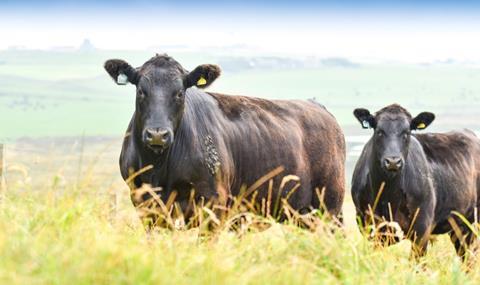Following the release of National Food Strategy Part Two last week, Barrie Turner, chief executive of the Aberdeen-Angus Cattle Society, has welcomed the plan but stresses the need for greater consumer education.

The report outlined proposed recommendations to address the major issues facing the English food system from health to the climate and environment, which will have major knock-on effects on farming and food processing.
The society welcomed the report’s empathy and understanding that farmers must make a profit while delivering this strategy for the nation. Also welcomed was the call for minimum core standards to be used during future trade deals.
Despite these commendations, Turner stated that this is “a very complex issue” and called for a distinction between grass-fed British meat and imports.
In reply to the report’s call to consumers to reduce their meat intake by up to 30% over the next 10 years, Turner stated that “[the solution] is not as simple as just cutting out meat.”
Turner continued: “As a population, consumers need the education and data to make an informed decision on their food purchases, and most paramount, the encouragement to buy British and sustainably produced. The plan shows a polarised view of a meat-inclusive diet, as opposed to a meat-free diet, which is unhelpful and potentially dangerous at consumer level.”
He added that the report does not recognise well enough that ruminants grazing farmland is necessary to sequestering carbon in the future.
“Adaptive grazing strategies are key to returning carbon to our soils over the next 50 years," he said, adding: “We agree that there needs to be a fundamental shift from consumption of processed meats, as a key aspect of carbon reduction. This, however, does not have to mean moving to heavily processed protein alternatives which are very often extremely costly and carbon-intensive to produce, but rather to simple high-quality, local produce, that showcases the clear value of the food we eat.”
This story was originally published on a previous version of the Meat Management website and so there may be some missing images and formatting issues.












